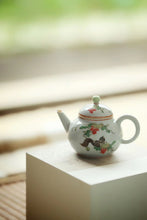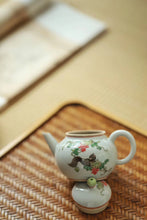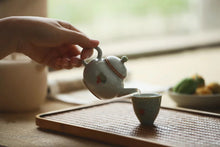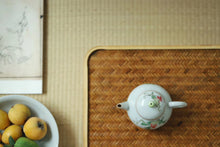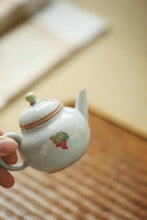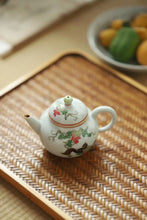
Today, I want to share with you two teapots, squirrel grape teapot made of pure hand painting, with a capacity of 100ml, which is very small and lovely. Now I want to share with you the story of the name of this teapot. Squirrel grape pattern is one of the most precious decorative themes of Ming and Qing dynasties porcelain. As a decorative theme of handicraft, grape pattern was first seen in Tang Dynasty, including seahorse grape pattern bronze mirror, grape pattern Silverware, etc. It was more common in Ming and Qing Dynasties. Scholars use grapes to compare the virtue of being a man and an official. The grape patterns in Yongle's red lacquer ware and Chenghua's color fighting porcelain are well-known. Especially in the middle and late Ming Dynasty, the government was corrupt, and the society paid more attention to the honest solar terms of the literati. Therefore, grape patterns were widely used in the porcelain of the folk kilns to show the moral of a gentleman. In addition, the grapes are clustered and fruitful, especially close to people's desire for their children's growth and family prosperity, and become a popular decorative theme. The combination of squirrels and grapes embodies the auspicious wishes of "many children, many blessings" and "thousands of generations of children", which shows a rich and rich life picture and implies peace and happiness. The squirrel grape decoration first appeared in the porcelain of the Ming Dynasty, and has developed into one of the important decorative themes in the Qing Dynasty. In modern times, this kind of decoration is mostly used in purple sand teapot and Jingdezhen porcelain. If you like this teapot, you are welcome to book it on the website: www.txs-tea.com






